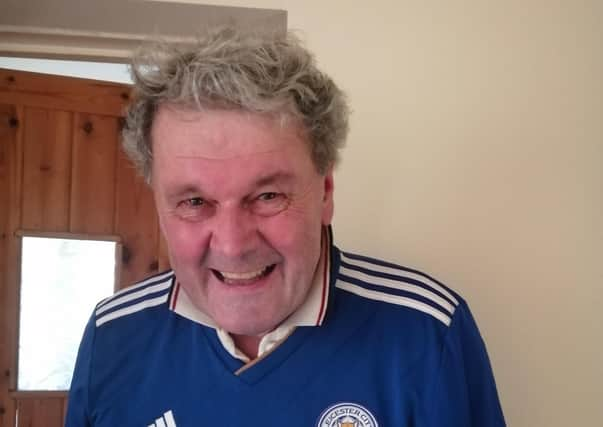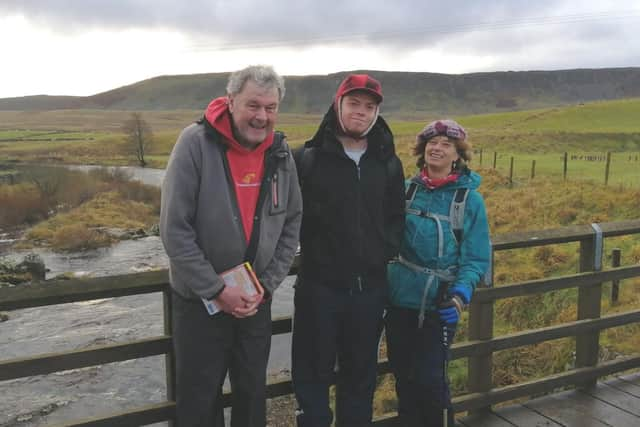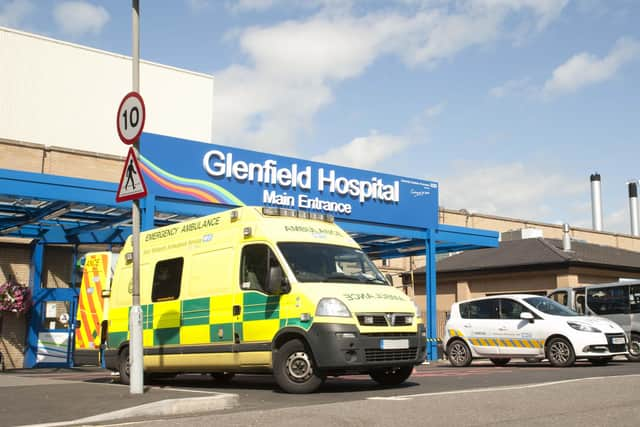Melton man describes his battle with ‘evil’ coronavirus


Kevin Bunney spent eight frightening days being treated in Leicester’s Glenfield Hospital and admits there were times when he thought he would not survive.
Doctors have now given the father-of-two the all-clear and he is taking part in testing for a new medicine which could help reduce the severity of the life-threatening Covid-19 bug, which has already contributed to the deaths of more than 20,000 people in the UK.
Advertisement
Hide AdAdvertisement
Hide AdKevin told the Melton Times: “I feel about 80 per cent better but I still get badly out of breath.


“I’m much better now though compared to two weeks ago when I was at death’s door.
“When I was in hospital the doctors didn’t sugar-coat it, they said ‘this could kill you’.
“This virus is evil - I’ve never felt so unwell in my life.”
Advertisement
Hide AdAdvertisement
Hide AdHe first started suspecting something was wrong with his health during a walk at Burrough on the Hill earlier this month - he is a regular walker but got out of breath walking just 30 yards.


Within 24 hours, his condition deteriorated so he rang 111 for medical advice. But later that night he began to run a raging fever and son Michael (24) rang 999.
“I was lying in bed trying to get my breath and I was just covered in sweat,” recalled Kevin.
“I had a very, very heavy fever.
“That was 2am and the ambulance arrived within 10 minutes of my lad calling the emergency services.”
Advertisement
Hide AdAdvertisement
Hide AdKevin said he felt delirious as he was taken to hospital, where various tests were carried out on him.
Within 48 hours he had tested positive for Covid-19 and was also diagnosed with pneumonia.
Staff gave him oxygen to help him breathe, Paracetamol to stabilise his temperature and infusions of anti-biotics.
“It was scary because the medical staff were all wearing masks and visors - they looked like Martians,” said Kevin.
Advertisement
Hide AdAdvertisement
Hide Ad“They were checking on me every 30 minutes and throughout the night, they didn’t give me a minute’s peace.
“I can’t speak highly enough of the staff at Glenfield, though, how those people do what they do, day after day, is beyond me.”
When his condition stabilised he was approached by two nurses who asked if he would like to take part in a medicine trial, which involves 100 people in the UK who have had both Covid-19 and pneumonia.
If it leads to a working treatment it will help others with the same symptoms as Kevin to fight the virus.
Advertisement
Hide AdAdvertisement
Hide AdKevin, who was moved off the ward into a cubicle when he began taking part in the trials, said: “It is very humbling to be asked to take part in these tests and I am continuing to do it while I am back at home.
“They have given me a nebuliser and I have to do tests every 24 hours as part of the research.”
Kevin, who also has another son, Phillip (26), is recuperating now. He works as a market trader and repairs and sells faulty footwear.
Meanwhile he has urged others to stay indoors and respect the guidelines aimed as limiting the spread of the coronavirus.
Advertisement
Hide AdAdvertisement
Hide Ad“Before I got this virus I might have been one of those people who went out when they shouldn’t do,” added Kevin.
“But from what I’ve seen in hospital and from what I’ve been through myself I would advise people not to take any chances.”
Chris Brightling, professor of respiratory medicine at the University Hospitals of Leicester NHS Trust, said the research Kevin and fellow Covid-19 survivors were taking part in was vitally important.
He said: “We will continue to follow-up with this patient group for many weeks and months so that we may fully understand their health and how it has been impacted by coronavirus over the longer term.”
Advertisement
Hide AdAdvertisement
Hide AdResearchers in Leicester have received praise nationally for both the highest recruitment rate (total number of patients) and the fastest recruitment rate (number of patients per day) they have secured for the RECOVERY trial – a national study into the most effective treatments for COVID-19.
Teams who are based at Leicester’s Hospitals have been so successful in their efforts that they’ve been approached to support the set-up of research in the new NHS Nightingale Hospital in London.
Martin Wiselka, professor of infectious diseases at Leicester’s Hospitals, said: “This is great news and is without any doubt down to the brilliant efforts of the teams involved across our three hospitals – the Leicester Royal Infirmary, Glenfield Hospital and Leicester General Hospital.
“We are totally committed to delivering this study to as many patients with COVID19 as possible.
Advertisement
Hide AdAdvertisement
Hide Ad“Currently 95 per cent of patients with COVID-19 consent to take part in the trials.”
Commenting on the success of Leicester’s Hospitals in recruiting patients to clinical trials for COVID-19, Professor Nigel Brunskill, director of research and innovation at Leicester’s Hospitals, said: “I cannot say this enough: there are no known cures for COVID-19, so research is a key pillar as we search for evidence-based treatments that can save lives.
“Every patient that has consented to take part is a hero in my eyes.
“While they may not benefit personally from the trials, what we learn may make a huge difference to patients in the not-too-distant future.”